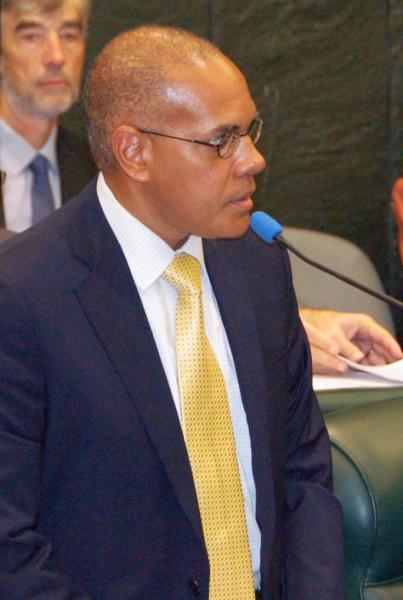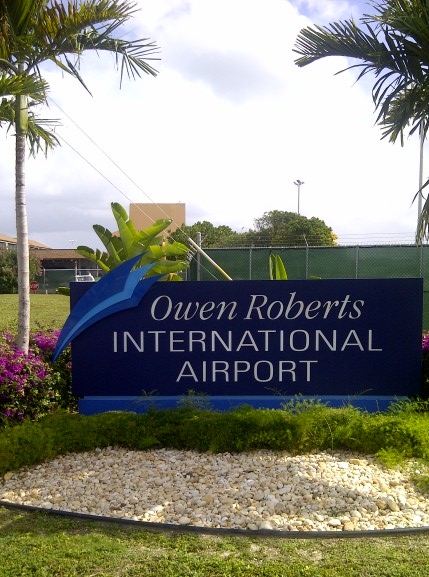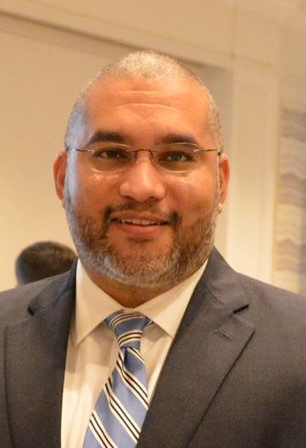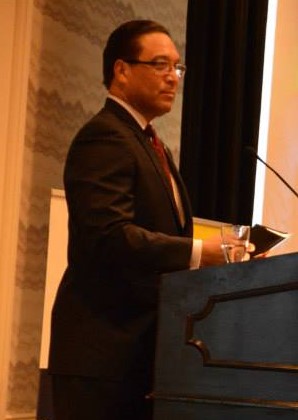 Politics
Politics

Minister emphasizes public accounts improvements
 (CNS): Despite the damning revelations about the state of government book-keeping in the latest auditor general’s reports the finance minister insisted on Friday that things were improving. Marco Archer told his legislative colleagues that since those reports were undertaken the current government has made a number of changes and is committed to improving the management of the public finances. The minister said that there had been important personnel changes in the ministries which had been exposed has having the most problems. Archer said he now expected the quality of financial reporting to improve. He added that there would be amendments to the PMFL to address other concerns as well.
(CNS): Despite the damning revelations about the state of government book-keeping in the latest auditor general’s reports the finance minister insisted on Friday that things were improving. Marco Archer told his legislative colleagues that since those reports were undertaken the current government has made a number of changes and is committed to improving the management of the public finances. The minister said that there had been important personnel changes in the ministries which had been exposed has having the most problems. Archer said he now expected the quality of financial reporting to improve. He added that there would be amendments to the PMFL to address other concerns as well.
Speaking in the Legislative Assembly on Friday about the reports conducted by Alastair Swarbrick’s team at the auditor general’s office and made public last week, Archer said there were still challenging times ahead with a lot of work to do but he said solutions were being developed. He said the current government inherited the current position but having campaigned on a ticket of transparency he said that the government would do all it could to achieve transparency in public finances.
He said over 90% of government entities received qualified or unqualified reports for the year ending 2012 but admitted that the quality of the overall government accounts would depend on every entity. If just one entity was disclaimed or received an adverse opinion the entire public sector statements would be disclaimed. Archer said it has been agreed with the auditor general that governments entire consolidated accounts for the year ending 2013/14 will get a qualified opinion but government was committed to achieving an unqualified opinion for this fiscal year’s accounts.
The minister said he and government finance officials have met with the auditor general to address the issues which are causing the continued disclaimers as he said the auditor was not satisfied that many of the financial statements were complete, accurate or fairly presented with insufficient evidence to support the balances.
He said as a result of the meeting the finance ministry was now developing a standardized submissions package to help the ministries and public authorities present their accounts and supporting documentation properly.
Acknowledging the concerns he said there was a concerted effort to strengthen internal controls to improve efficiency, safeguard assets and improve reliability and compliance with laws. However, Archer also noted that future valuations of government capital assets would also be done in the required format showing a full breakdown of the government’s property assets.
See related story on CNS and the OAG's latest reports below

Key authorities in trouble
 (CNS): A number of the government’s key authorities are not only losing money but facing major management issues from board interference and bad debts to a lack of compliance with tendering processes and the laws which established these entities. In his latest report looking at the state of all of government’s statutory authorities and companies (SAGC) for the financial year ending 30 June 2012, the auditor general has highlighted many weaknesses in the business models and has raised significant questions about Civil Aviation, the Airports Authority, the Maritime Authority, the Port Authority, Health Services Authority and the Tourism Attraction Board, as well as the usual suspects: the Turtle Farm and Cayman Airways.
(CNS): A number of the government’s key authorities are not only losing money but facing major management issues from board interference and bad debts to a lack of compliance with tendering processes and the laws which established these entities. In his latest report looking at the state of all of government’s statutory authorities and companies (SAGC) for the financial year ending 30 June 2012, the auditor general has highlighted many weaknesses in the business models and has raised significant questions about Civil Aviation, the Airports Authority, the Maritime Authority, the Port Authority, Health Services Authority and the Tourism Attraction Board, as well as the usual suspects: the Turtle Farm and Cayman Airways.
While financial reporting and governance environments at many SAGCs has begun to improve over the last few years, Alastair Swarbrick’s latest report demonstrates that, like central government, the semi-autonomous public entities are also still struggling with a catalogue of issues. These undermine their performance and put at risk the tax payers' money injected into these entities as a subsidies or as payments made by government for their services.
In a detailed analysis of the 26 entities that were audited for the financial year ending on 30 June 2012, less than half were able to meet the statutory deadlines in preparing financial accounts. In the final analysis one entity, the Children and Youth Services Foundation, failed to complete any financial accounts, ten others received qualified opinions and one, the Sister Islands Affordable Housing Development Corporation, was disclaimed. Of the remaining 14 that were given unqualified opinions, Swarbrick indicated that there were still many problems in the management and financial stability of these government-owned entities.
Notwithstanding some improvements, the Office of the Auditor General (OAG) report pointed to many shortcomings, including the failure of the SAGCs to table full reports to the Legislative Assembly in a timely manner, which Swarbrick said was fundamental. There were still financial management problems in many, as well as board interference and conflicts of interest that are not only undermining the running of many of these authorities and companies but leaving public cash vulnerable to abuse.
“There are still fundamental gaps in the accountability of government for the use of public resources and a significant way to go before financial accountability is restored,” Swarbrick wrote, despite his indication that things are improving. “My reports also highlight the significant weaknesses in governance and control frameworks that I believe are impeding the ability for entities to prepare timely and accurate financial reports.”
Swarbrick highlighted a litany of problems that authorities face. Some he found were already in dire financial circumstances, and while others were holding on, there were warning signs of significant future problems with their future viability. For some, it was not just a matter of poor financial performance and waste but conflicts of interest and mismanagement. SAGCs were straining government coffers while receiving payments and subsidies from the public purse but still returning further deficits.
The problems he found were varied and plentiful and although all but two of the 26 entities audited raised questions and concerns for the audit office, Swarbrick pointed to the Airport Authority, Civil Aviation, the HSA, the port and the Tourism Attraction Board as particularly troubling.
Breakdowns in governance, political interference and conflicts of interest at the Airport Authority were just some of the reasons why the CIAA received a qualified opinion. Swarbrick highlighted an already well-documented catalogue of concerns at the airport, including the former minister’s direction to the board regarding operational matters.
The report stated that McKeeva Bush provided direction “beyond his lawful authority” and directed who and how many ground handlers there would be, two of which were owned by board members at the time. The board also interfered beyond its authority with staff and operational matters. The conflicts of interest were also “so pervasive” they had the “potential to undermine the ability of the board to operate in the best interests of CIAA and negatively impact its financial performance.”
The report also indicated serious problems at Civil Aviation, where one of the reasons for its qualification was the potential lack of disclosure of related party transactions by the board. Swarbrick said there was evidence of a breakdown between the board and management and a pay dispute. He also found policy and human resource problems affecting the governance of the CAA.
The Port Authority was also facing a litany of problems undermining its ability to operate. From issues over related party transactions and the absence of good governance standards for the board to non-compliance with the port regulations and its increasing liabilities, Swarbrick highlighted several internal control and financial management concerns. The auditor also noted the amount of money the port authority had spent on legal fees trying to fight FOI requests at the direction of the board.
The HSA faced major issues, especially over bad debt. Its qualified opinion related to problems the auditors found with revenue records, the accuracy of the accumulative deficit, as well as the hospital’s difficulties in absorbing patient care costs that government had not covered as it exceeded the Ministry of Health’s budget.
Although the Tourism Attraction Board is much smaller than the other four critical authorities, the significant amount of problems raised serious concerns. Swarbrick said the number of internal control and other governance problems were so bad that the TAB was at risk of error, fraud and misuse of public funds. From serious discrepancies in the management of cash to theft and misappropriation of money, the report pointed to more ministerial interference. Bush, who was the minister and premier at the time, had reportedly indicated who should be given contracts to supply services.
With numerous problems still facing SAGCs, Swarbrick noted that even the ones that are improving are hindered by the fact that reports are not being made public. The importance of accountability was highlighted by the number of problems the auditors have found and now exposed some two years after the fact. Swarbrick said that until reports are completed and made public in a timely fashion, the Legislative Assembly would continue to remain in the dark about how SAGCs collect and spend public cash.
See the OAG full report on SAGCs below.

CIG accounts mess rolls on
(CNS): The auditor general has focused his concern on two ministries, which have failed to account for more than one billion dollars, in his latest report the ongoing mis-management of public finances and the appalling state of government’s accounts. Alastair Swarbrick said the Ministry of District Administration, Works, Lands and Agriculture has never produced a reliable or credible set of accounts since the introduction of the Public Management and Finance Law while the Finance, Tourism and Development Ministry has failed to account for a broad variety of transactions, calling into question the capabilities of the management and finance staff in that ministry.
Examining in particular the financial years ending 2011 and 2012, he said that the audits of the ministries have raised “significant concerns about the governance and internal control environment.”
With poor controls, a disregard for procurement rules, poor bank reconciliations, inappropriate authorization of invoices, a lack of management review and the writing off of large account balances without approval, he said that the managers in these ministries have no reliable information on which to make informed decisions, legislators have no assurances that the resources they approve are being used as intended and the public remains in the dark about how millions and millions of dollars have been spent over the years.
“Ultimately there has been no accountability for around $1 billion of public funds in these two ministries and a significant increase in the risk of waste, misuse or abuse of public funds,” he said.
Reluctant in the pas, to point the finger publicly at the real problem, Swarbrick has now stated that the incompetence of civil servants tasked with dealing with the management of public cash and the mismanagement by their bosses is one of the major reasons for the appalling state of affairs that remains regarding public finances.
He said the financial management problems are indicative of the failure to ensure competent people and practices are in place.
“The lack of due regard for reasonable controls and the number of transgressions of the laws has led me to conclude that management in certain ministries and portfolios have not discharged their duties to ensure appropriate practices are implemented to protect public funds and that they have disregarded their responsibilities to comply with Cayman Islands laws,” Swarbrick stated in the most damning indictment from the independent public auditor to date.
In the report, which is now a public document, the audit team found a staggering amount of problems with the ministry of the former premier, McKeeva Bush, headed up by Stran Bodden, Sonia McLaughlin and Kenneth Jefferson for the audit periods that the office examined.
“The significance and sheer volume of the matters identified provide clear evidence of significant weaknesses in the inter control environment providing opportunities for mismanagement and abuse of public funds,” the auditors stated in their governance report for the years ending June 2011 and June 2012.
Meanwhile, at District Administration, which was Juliana O’Connor Connolly’s ministry headed up by Kearney Gomez and then Alan Jones during the period in question, the auditors found many similar problems. An absence of information and evidence has essentially prevented the office from reaching any kind of opinion about the accounts or agree that any claims made by the ministry about their accounts were fairly stated.
While Swarbrick focused on the particular problems of these two ministries, he also found a litany of problems with many other ministries and portfolios. Although there were some improvements in the public accounts and efforts to get some form of financial records to his office on time for audit, the quality still leaves much to be desired. Swarbrick noted that the improvements are against the backdrop of the truly dire circumstances that existed a few years ago when ministries were simply failing to do their accounts at all.
However, aside from the continuing problems of government entities simply not having the people in place that can manage the books, Swarbrick’s team found other major management system problems that are contributing to the poor accounting standards and enormous risk of abuse to public funds.
“There continues to be a lack of due regard by senior officials for ensuring that appropriate systems are in place, exposing public funds to risks of waste and misuse,” Swarbrick stated as he pointed the finger at all of government’s chief executive officers and chief financial officers. The auditor urged the members of the Legislative Assembly to act promptly to ensure senior officials do something to mitigate the potential abuse to tax payers' money.
Check back to CNS later for more on the auditor’s latest damning review of the ongoing financial mismanagement in government.
See the financial and performance reporting from ministries, portfolios and offices for the years ending 30 June 2011 and 30 June 2012, report below

$1Billion unaccounted for
(CNS): Two ministries are, between them, unable to account for more than $1billion of public money as a result of the continued failure of the financial management systems, abuse and incompetence, says the office of the auditor general. Despite claims of improvement, government accounts remain in a mess when it comes to accounting for the almost ¾ of a billion dollars it costs to run government and its authorities each year. But the latest revelations show that the ministries of tourism and district administration, in particular, have an appalling record of mismanagement and potential abuse over the last seven years, failing to account for the whopping sum.
Check back to CNS later today for more on the government’s accounting situation and details of the auditor’s reports released today.

Cayman Speaker loses out in CPA chair elections
 (CNS): Juliana O’Connor-Connolly was pipped at the post in a Commonwealth Parliamentary Association (CPA) vote earlier this month when she was in Cameroonfor the recent 60th General Assembly meeting of the association. In a closed door head-to-head vote Shirin-Sharmin-Chowdhurry was elected the new chair of the CPA’s Executive Committee, the first Bangladeshi to take up the role with the organisation that promotes parliamentary democracy across the Commonwealth. Chowdhurry, who is the Speaker of Jatiyo Sangshad, the Bangladesh Parliament, defeated Cayman’s speaker by just three votes.
(CNS): Juliana O’Connor-Connolly was pipped at the post in a Commonwealth Parliamentary Association (CPA) vote earlier this month when she was in Cameroonfor the recent 60th General Assembly meeting of the association. In a closed door head-to-head vote Shirin-Sharmin-Chowdhurry was elected the new chair of the CPA’s Executive Committee, the first Bangladeshi to take up the role with the organisation that promotes parliamentary democracy across the Commonwealth. Chowdhurry, who is the Speaker of Jatiyo Sangshad, the Bangladesh Parliament, defeated Cayman’s speaker by just three votes.
O’Connor-Connolly, who has served an elected member for Cayman Brac and Little Cayman since 1996, had a brief stint as Cayman’s second premier in 2013, making her the first woman in that job. She also has a long history as Cayman’s representative to the CPA, travelling around the world for the meetings.
However, with 67 votes to Chowdhurry’s 70, she narrowly lost out in the ballot. The Bangladeshi speaker replaces Alan Haselhurst, a member of the United Kingdom’s House of Commons, and will serve for the next three years as the chair of the 35 member committee. Out of the total 321 votes, 137 voters from 175 members of the association turned up at the general assembly, which is the body authorised to elect the chair.
O’Connor-Connolly, who was nominated to run on behalf of the region by her Caribbean parliamentary association colleagues, had said ahead of her trip to Africa, “I look forward to going with great anticipation to Cameroon, knowing I will be the candidate of the Caribbean. If successful, I will work diligently throughout the duration of the term to ensure that the Caribbean will continue in its rich heritage of transparency and accountability.”

CIG on track to pass targets
 (CNS): Government earnings were over $2.5 million more than expected and spending was down $5.5million less than projected in the first quarter of the 2014/15 financialyear. As a result the public purse is on target for a major surplus at the end of this year if government can keep spending down and the economy growing. Already aiming to have almost $121 million left next June when it has paid all its bills government may do even better as it battles to reach the FCO’s aggressive targets to ensure Cayman gets back on track with the management of public finances and debt ratios. With no new debt being incurred central government will repay $25.4 million off is debt load before the year end and it is also expecting to cut overdraft interest and fees to zero.
(CNS): Government earnings were over $2.5 million more than expected and spending was down $5.5million less than projected in the first quarter of the 2014/15 financialyear. As a result the public purse is on target for a major surplus at the end of this year if government can keep spending down and the economy growing. Already aiming to have almost $121 million left next June when it has paid all its bills government may do even better as it battles to reach the FCO’s aggressive targets to ensure Cayman gets back on track with the management of public finances and debt ratios. With no new debt being incurred central government will repay $25.4 million off is debt load before the year end and it is also expecting to cut overdraft interest and fees to zero.
“At 30 September, 2014, the Government's Operating Bank account balances totalled $67.1 million and the Government is confident those balances will remain positive throughout the entire fiscal year,” the premier announced recently, when he reviewed the country’s finances in his state of the nation address.
Crediting his finance minister who is in charge of the public purse strings, Alden McLaughlin said Cayman was lucky to have the “skill and zeal” of Marco Archer was creating confidence in the economy. “Investors like certainty, and Minister Archer has certainly brought this to the management of the public finances,” McLaughlin said, adding that it was no mean feat to achieve Budget approval from by the FCO on first submission
Meanwhile, the statutory authorities and government-owned companies also enjoyed a positive first quarter of the year collectively experienced an operating surplus of $1.7 million, a million dollars more than expected.
McLaughlin said government has worked hard every day since being returned to office some 18 months ago, to restore stability to the country and the economy.
“Our economic policies are working and the economic indices are pointing to encouraging growth,” McLaughlin claimed.
With overall economic activity in Cayman Islands growing by an estimated 2.2 per cent in the first six months of 2014 he said that in the first quarter, the GDP grew by 1.5 per cent while during the second it is estimated to be at 3.3 per cent. “The growth rates are the strongest estimated so far for the country during the post-2008 global financial crisis period,” the premier stated.
He added that economic growth had occurred in several sectors including wholesale and retail trade; hotels and restaurants; transport storage and communication; real estate, renting, business activities; and construction.

Basic wage debate goes public
 (CNS): After several months examining the issue of a minimum wage for the Cayman Islands the committee is opening up the debate to the public. The community is being asked to complete one of five surveys or submit comments on the proposal for a legally set basic wage rate and possible tiered regime. The committee established by government under the labour law to make recommendations will also be holding focus group meetings over the next few weeks during this first phase before a series of town-hall meetings begins in the New Year. Although the acting chief officer in the employment ministry said government is aware of how many workers the proposal for a minimum wage will impact it is not willing to say what that figure is.
(CNS): After several months examining the issue of a minimum wage for the Cayman Islands the committee is opening up the debate to the public. The community is being asked to complete one of five surveys or submit comments on the proposal for a legally set basic wage rate and possible tiered regime. The committee established by government under the labour law to make recommendations will also be holding focus group meetings over the next few weeks during this first phase before a series of town-hall meetings begins in the New Year. Although the acting chief officer in the employment ministry said government is aware of how many workers the proposal for a minimum wage will impact it is not willing to say what that figure is.
Although pressed to reveal an estimate of how many Caymanians are living on wages that fall below what will eventually be the minimum wage rate, Christen Suckoo refused to give any estimates as he said he didn’t want to pre-empt the work of the committee or “telegraph the level” at which the wage may be set before the committee has completed its research and analysis and collected the information during this public consultation period which is viewed by government as a very important part of the process.
It is still not clear what the twelve man committee will recommend and whether Cayman will have one basic rate or a more complex minimum wage regime to take into account helpers, and other domestic workers as well as hospitality staff that depend on tips to boost often very low hourly rates. Lemuel Hurlston the chair of the committee indicated that Cayman may be looking at a tiered regime with different basic rates for different workers but on the other hand he also spoke about the need for the regime to be as simple as possible to ensure compliance which will present a challenge for government.
Government has budgeted around $200,000 for what is a long process to examine the issue. During a press briefing to launch the public consultation part of that process, the employment minister stated that Cabinet was committed to moving things along. However, at no point did she categorically state that government would definitely be implementing the basic wage and she herself still refused to say whether or not she supported the principle of a minimum wage but spoke about supporting liveable wages.
The debate is however now open for comment and five on-line surveys for different members of the community depending on their job and sector as well as bosses, have been opened on the education and employment ministry’s website (www.education.gov.ky/minimumwage.)
Printed copies will be available at libraries and the government building and the first focus group meeting will take place on Saturday 25 October at Layman Scott Sr. High School Hall in Cayman Brac. The morning session will be for both Household and Business Employers.
The afternoon session will be for Household and Business Employees and unemployed Caymanians.
The next focus group will be on Thursday evening, 30 October beginning at 7:00pm at the Family Life Centre which will focus on the youth, unemployed Caymanians and household employees. The final session on Saturday 1 November also at the Family Life Centre will start with household and business employers in the morning and the afternoon session will be for household and business employees and unemployed Caymanians. The sessions will be two hours in length with the morning session beginning at 10:00am and the afternoon session beginning at 1:00pm.
People wishing to be part of the focus groups will need to register by emailing minimumwage@gov.ky or by calling 244-3151.
Meanwhile, the public can begin to submit general comments to the Secretary of the Minimum Wage Advisory Committee c/o Ministry of Education, Employment & Gender Affairs, Government Administration Building, Box 108, Grand Cayman, KY1-9000 or via Email:minimumwage@gov.ky

Bosses need to be fair
 (CNS): The Cayman Islands premier has called on employers to be fair to Caymanian workers against the backdrop of what he described as a growing feeling of “dissatisfaction, even resentment” among many locals about their treatment in the labour market. Alden McLaughlin said that government is doing what it can to try and tackle the problem of jobless growth with investment in the NWDA, changes to the labour law and its stewardship of the economy. But he said that employment issues here have to do with more than just economic conditions with concerns about qualified and able Caymanians not being given proper preference for jobs and fair treatment increasing.
(CNS): The Cayman Islands premier has called on employers to be fair to Caymanian workers against the backdrop of what he described as a growing feeling of “dissatisfaction, even resentment” among many locals about their treatment in the labour market. Alden McLaughlin said that government is doing what it can to try and tackle the problem of jobless growth with investment in the NWDA, changes to the labour law and its stewardship of the economy. But he said that employment issues here have to do with more than just economic conditions with concerns about qualified and able Caymanians not being given proper preference for jobs and fair treatment increasing.
“Government is becoming more and more concerned at what appears to be a trend among some companies of declaring jobs held by Caymanians as redundant, then retitling them and applying for work-permits. The complaints about unfair treatment in the work-place, calls for a greater voice for workers and the demands for a minimum or living wage continue to strengthen,” McLaughlin told an audience of Chamber of Commerce members last week when he delivered his state of the nation address.
“An unhappy local workforce must be a matter of concern, not just to Government, but to the Chamber as well,” the premier warned, as he added that the government cannot address these issues alone. “The fundamental issue of the treatment of the Caymanian worker in the Cayman job market needs more than legislative change; it requires a change in attitude.”
As he noted the Chamber's pendulum continues to swing in favour of business he said the Chamber's leadership has an obligation and a duty to demand a standard of ethics and fair play from its membership.
“The hiring of capable and willing Caymanians and paying a good and fair wage should not be a matter for debate,” the premier stated clearly.
He said that government was doing its part to provide an environment where business can flourish with its economic strategy and recent concessions aimed at reducing the cost of doing business. But he warned bosses not to take the savings in duties and license fees straight to the bottom line to increase profits as he said that was a short-sighted approach that would be bad for business.
“It is important that business plays its part by passing on the savings to its customers to generate more business and ultimately provide more opportunities for employment,” he told the room in which there were many bosses. “Unemployed people cannot support your businesses.”
He said government had developed a multi-pronged approach to grow jobs but there was no single or simple solution.A new director has been hired for the National Workforce Development Agency to "enhance economic and educational opportunities for Caymanians.
“He will work with Government, businesses and educational sectors to ensure NWDA meets the needs of both job seekers and employers,” McLaughlin said as he revealed the latest statistics from the NWDA which is still struggling to make a serious dent in the more than estimated 2000 local people looking for work.
Over the last 14 months the NWDA has placed just 179 people in work, but now over a 1000 firms have registered jobs with the agency and permits have fallen over the same period by 2.2 per cent. He said the NWDA was helping Caymanians with an intake and assessment process that includes the identification of barrier and an appraisal of skills, interests and abilities of job seekers. McLaughlin also spoke about the increase in transparency between the agency and the Immigration department’s work permit process. He also said that government planned to publish the draft bill to amend the Labour Law before the end of the year for public consultation.
However, this was just one prong of the attack on joblessness in which he said the business community had to play its part.
During his address at the legislative lunch the Chamber president Johann Moxam had also called out his own membership about the issue of employment. He said as the membership called fro the rationalization of the civil service it had a responsibility to employ those government workers impacted as he called on the membership to take greater responsibility.
“Businesses must do more to hire competent and qualified Caymanians and provide them with a fair career path and opportunities for advancement,” he said but added that companies who did make decision to grow, hire and retain Caymanians must be rewarded.
He said that there was a time when large firms were standard bearers in training and development of local workers such as Cable & Wireless and CUC.
“These companies made the strategic decision to invest in Caymanians; they have a trained, Caymanian workforce and their staff is dedicated and long serving,” but few local companies are making that type of investment today he warned.
However, Moxam still pointed the finger at local workers when he said that being Caymanian in today’s competitive business environment was simply not enough as he called for higher standards across the board, “and honour our previous generations of men and women who made sacrifices and were world renowned for their work ethic and attitude.”
“Government policies must not facilitate or reward any form of discrimination, but we must also prepare ourselves to be today’s workers, tomorrow’s entrepreneurs, and Cayman’s next generation of leaders,” Moxam added.

CS accountability overdue
 (CNS): The continued failure of the civil service to produce any consolidated government accounts after more than a decade was just one of the concerns raised by the Chamber of Commerce president last week when he took aim at governments short-comings at the annual legislative lunch. Johann Moxam pointed out that the elected arm of government has to face the national vote every four years but there is no accountability for the civil service management. Advocating for rationalisation and a more efficient government Moxam said that could only happen with some accountability from the senior public servants but no one was seeing any at present.
(CNS): The continued failure of the civil service to produce any consolidated government accounts after more than a decade was just one of the concerns raised by the Chamber of Commerce president last week when he took aim at governments short-comings at the annual legislative lunch. Johann Moxam pointed out that the elected arm of government has to face the national vote every four years but there is no accountability for the civil service management. Advocating for rationalisation and a more efficient government Moxam said that could only happen with some accountability from the senior public servants but no one was seeing any at present.
“If we are going to advocate for efficient government and for taking action, we must also seek accountability. Accountability is overdue,” he said. “A decade without audited, consolidated financial statements,” the president added as he asked the audience to consider that. “How does this Government and the UK manage its contingent liabilities?” he queried.
Pointing out that elected officials are at least held accountable every four years at the polls, Moxam asked the governor and the deputy governor where is the accountability from civil services bosses.
“The reality is that the public sees no such accountability among public servants, even at the highest levels,” he said, including chief officers, chief financial officers, deputies, heads of departments and those responsible for statutory authorities and government companies.
“Accountability is overdue in a public sector of this size. The Chamber and the wider business community have consistently called for public sector reform and a national strategic plan for the past ten years,” he added, as he queried what government planned to do if it was not going to act on the recommendations in the recent E&Y report to address the problems.
Moxam criticised the quality of service from the public sector and noted that it was undermining business and warned that with a changing world despite Cayman’s past successes the country could no longer progress with the same mind set and principles of the 1980s.
“Best practices do not include waiting for four to six hours at the customs counter to clear goods,” he said. “They do not include long waits in immigration lines. They do not include expensive delays and additional costs because a planning application is in a bureaucratic tug of war. We all know these things happen, and we all know that in today’s competitive world, such practices should no longer be the norm.”
Being more efficient requires action, the president suggested, not more talk as he criticised government leaders for not acting on tough issues content to talk about issues or just study them.
“Increased crime, a bloated Civil Service, an inadequate public education system, and for 25 years and counting, our inability to come up with a practical solution to deal with the GT Dump,” he said. “Too often, we see leaders who have the courage to ask for expert help and the financial fortitude to pay for it. And then it stops there.”
He went through the long list of costly reports on myriad subjects that have gather dust on government shelves from the Yolanda Forde Report on crime to the Miller Shaw Report on cutting the public sector. “We sure are smart enough to pay for expert analysis, yet we repeatedly lack the discipline to implement the recommendations. What exactly is the point of knowledge if we don’t use it?” the chamber boss asked rhetorically.
Moxam said the Chamber was advocating for a more efficient government including the statutory authorities and government owned companies and for government to have a clear plan and to deliver on it based on needs and not egos or agenda.

McLaughlin won’t sell CIG
 (CNS): The premier gave his first real public indication on Thursday that the PPM administration will not be adopting a large number of the measures which were recommended in the controversial Ernst & Young report. Alden McLaughlin said that the report contained recommendations only and government would not do anything that it believed would not be in the interests of Caymanians to favour one sector of the community. He said the PPM government won’t sell the government building or land assets, nor will it sell Radio Cayman and the Water Authority. McLaughlin announced, however, that the government will be embarking on an RFP to deal with the development of a new sewage system.
(CNS): The premier gave his first real public indication on Thursday that the PPM administration will not be adopting a large number of the measures which were recommended in the controversial Ernst & Young report. Alden McLaughlin said that the report contained recommendations only and government would not do anything that it believed would not be in the interests of Caymanians to favour one sector of the community. He said the PPM government won’t sell the government building or land assets, nor will it sell Radio Cayman and the Water Authority. McLaughlin announced, however, that the government will be embarking on an RFP to deal with the development of a new sewage system.
Speaking to CNS after his State of the Nation address at the Chamber of Commerce’s annual legislative luncheon, McLaughlin said that government would not be privatizingeducation or health.
The premier, who is a former educationminister, said that he wanted to see more private sector involvement in education but he said that he did not support the idea of wholesale privatization. He also admitted that more research of the charter or grant maintained schools was required, as he acknowledged some of the problems and said that the government wanted to form partnerships rather than a complete takeover.
He said the same issue applied to the Health Services Authority, where he said he did not believe in the complete outsourcing of services. He said government was already doing what EY was recommending but was partnering with private sector health care providers rather than outsourcing.
In his address to the business audience over lunch the premier stated that the EY report was commissioned because government expenditure could not be permitted to grow in the way it has over the last ten years and to help with a more efficient delivery of public service, so government wanted professional advice. McLaughlin said the report has some 55 recommendations, including the sale of government assets, hiving off of various services, the amalgamation of agencies and other recommendations.
“But they are just that: recommendations,” he said to Chamber audience following a speech by the president of the Chamber Johann Moxam calling for the adoption of the report.
“The decisions about what will be done are for the caucus and ultimately the Cabinet. We believe the report is a useful tool and we thank EY for their good work in its production. But the government is not going to adopt the report wholesale,” he stated. “Some recommendations will be accepted, some will be modified and others will not be accepted. We are still carefully going through the review process and making decisions.”
He pointed out that government was already along the road with a number of the recommendations, such as the airport renovation, the PPP process for the cruise terminal, raising the retirement age of civil servants to 65, the development of a solid waste management system, simplifying financial reports, and a new governance model for education to increase community participation.
“While we do agree on some issues, there are others that we see different approaches as being more palatable,” he added, as he listed what government would not do including selling the Water Authority as he announced plans to develop an RFP for the construction of a national sewerage system.
He also confirmed that it would not sell Radio Cayman.
“Aside from the fact that it is a Cayman institution, Radio Cayman provides a key and trusted service to the Cayman community. Instead of being sold, Radio Cayman and the other government media will be coordinated in order to serve government and the community more effectively,” he added. “While we recognize the need to rationalize Government services, before we make any moves toward privatization, amalgamation or restructuring, this Administration will have to be satisfied that any action Cabinet takes will be in the best interest of the Caymanian people.”
However, the premier did make one concession to the Chamber, which has been pressing for the adoption of the EY report and one of the concerns that Moxam had expressed recently: that the Implementation Unit would not have the nerve to implement Cabinet's recommendations as it was made up of made up of only civil servants. McLaughlin invited the Chamber to nominate one member to serve on the steering committee that will guide the implementation process.